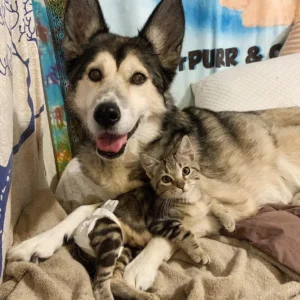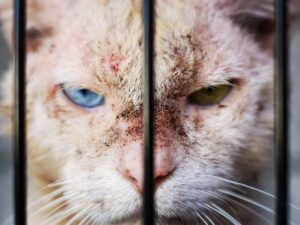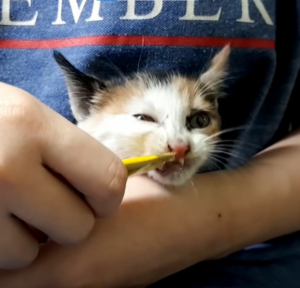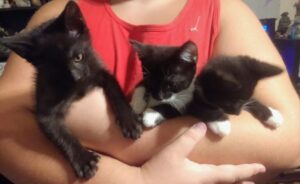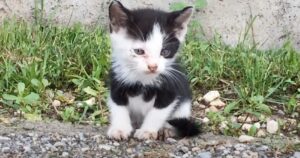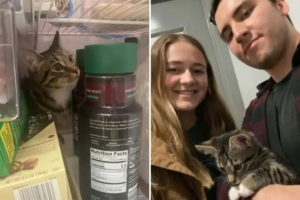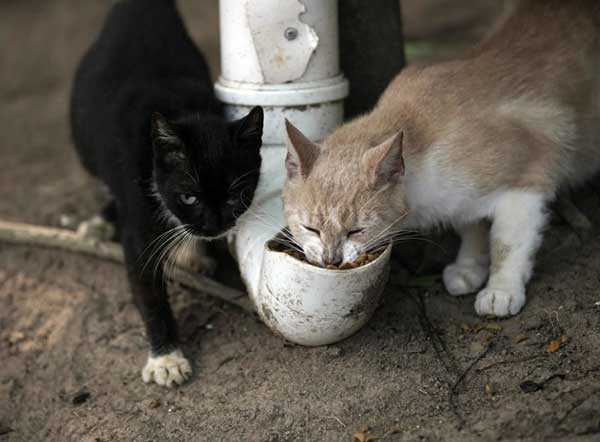
Cats living on the island off the coast of Brazil have had to find and eat the carcasses of other animals to live because the Covid-19 pandemic forced people to self-isolate, the number of tourists around the island plummeted, food sources like restaurant leftovers, passing boats are gone.
Pictured is a cat eating from a PVC food distribution system built by volunteers.
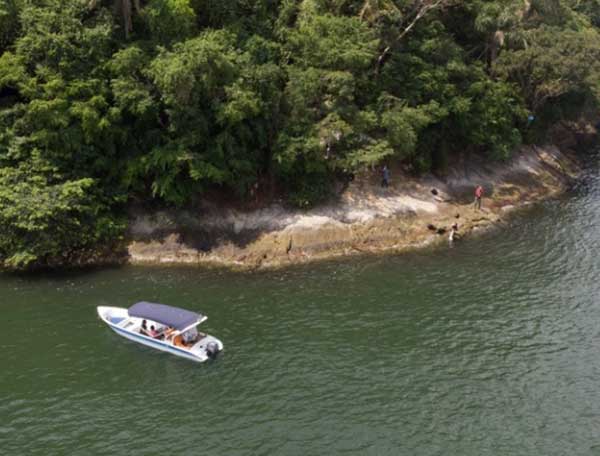
Furtada Island, known as “cat island”, is about 20 minutes by canoe from Mangaratiba city. The island is located at the furthest tip of Brazil’s Green Coast, an area covered with rainforest and a long coastline of hundreds of islands.
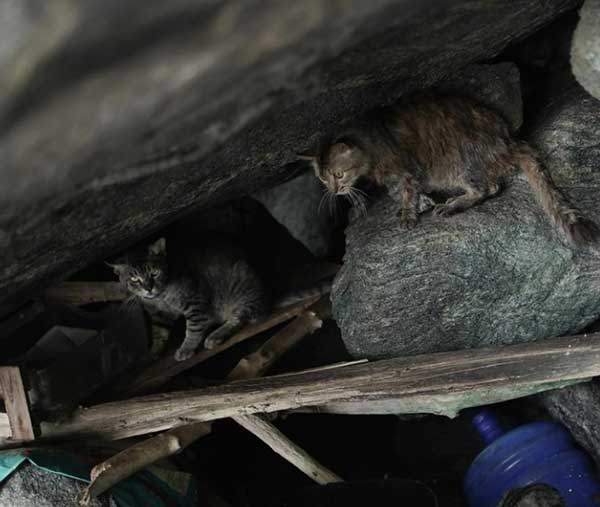
Over the years, fishermen often leave fish intestines or other unnecessary things on the island. In addition, some kind fishermen left behind drinking water and food for the cats. It’s what feeds hundreds of “residents” of the island, especially new-grown cats that aren’t as skilled at hunting as cats born in the wild.
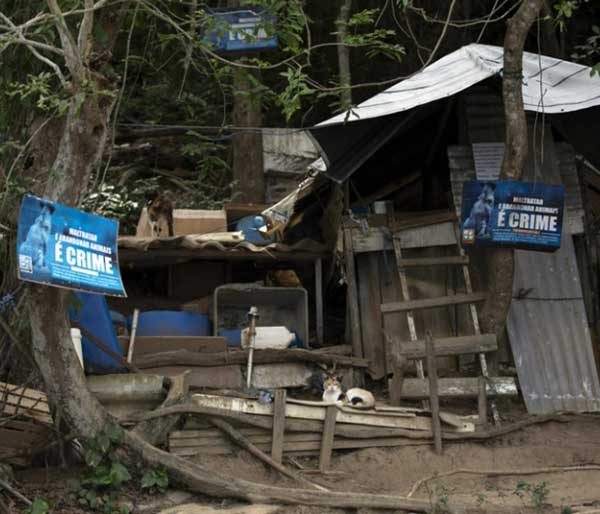
Residents were completely unaware of the horrifying scene happening all over the island until they heard from fishermen in April. Mr. Jorge de Morais, 58, works in protection and relief work. local animals and a few other volunteers started fundraising and asking for donations from the locals.
In April, they built a simple food and drink distribution system using PVC pipes and had weekly inspections. Pictured are two cats standing in a rock-covered area of the island.
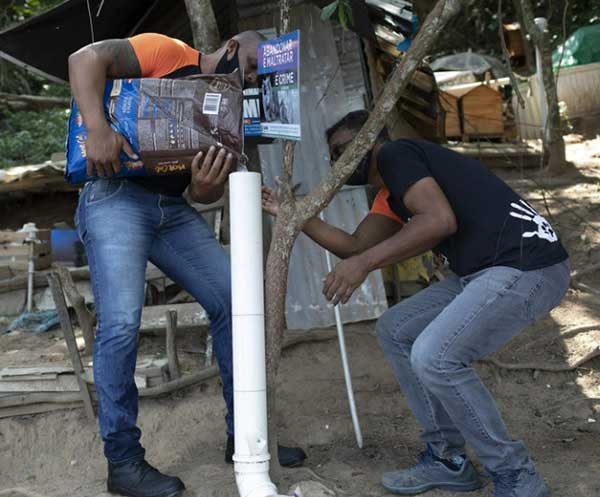
The cats rest at shelters built for them by volunteers. They are working to make sure the cats on the island have enough food to survive. According to volunteer team leader Joice Puchalski, while newly abandoned cats are generally friendlier to people, the island’s feral cats are always in hiding. They can only be seen at night when their eyes flash in the darks.
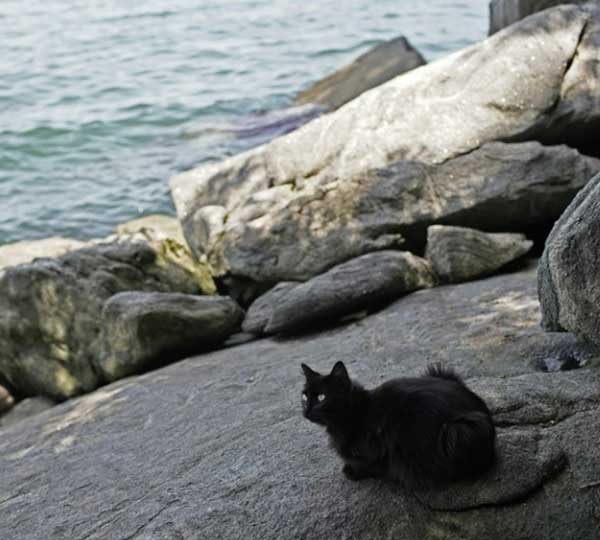
The 250 cats are believed to have come from a couple who lived on the island about 20 years ago, according to Puchalski. They left the island after that, leaving behind a pair of cats. These cats mate and give birth. As the number of cats increases over time, people pay more attention to them and rumors say that this is the land of feral and abandoned cats.
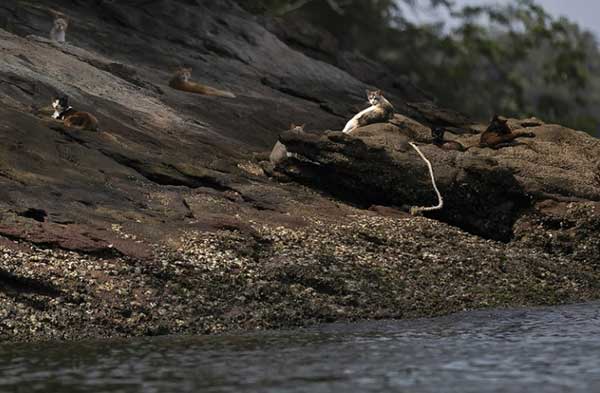
Authorities are trying to prevent animal abandonment on the island. This is an illegal practice, but it seems that banning signs does not help improve the situation. Last month, parliament also passed a law increasing the punishment for cat and dog abuse, which can carry penalties of up to five years in prison.
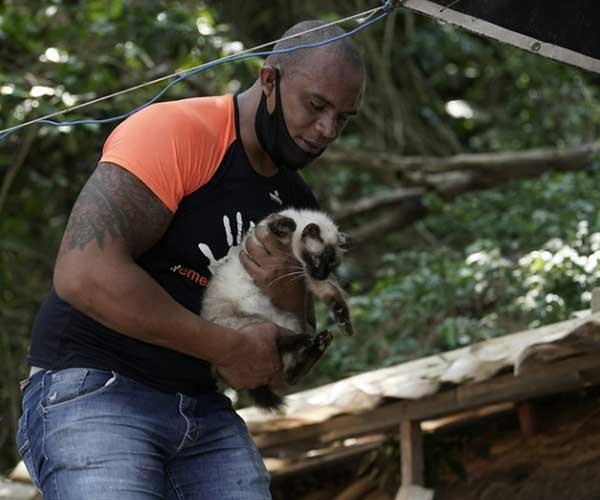
Also according to Puchalski, the island has no springs and limited clean water is the cause of many kidney problems of cats on the island. But the most terrible danger is the venomous Pit Viper. Their venom is said to be one of the deadliest toxins on the planet. The lizards can also take advantage of the opportunity to attack kittens.
Volunteers assist in first aid and move injured cats to shore for treatment. They are also looking for a new home that can adopt these poor animals. And if there are no positive results, they will bring them back to the island to pick up another batch of animals to check, treat and find someone to adopt.
This is a difficult job. “We implore everyone to join hands, help us to stop this crime because, for us, it is very cruel.”
